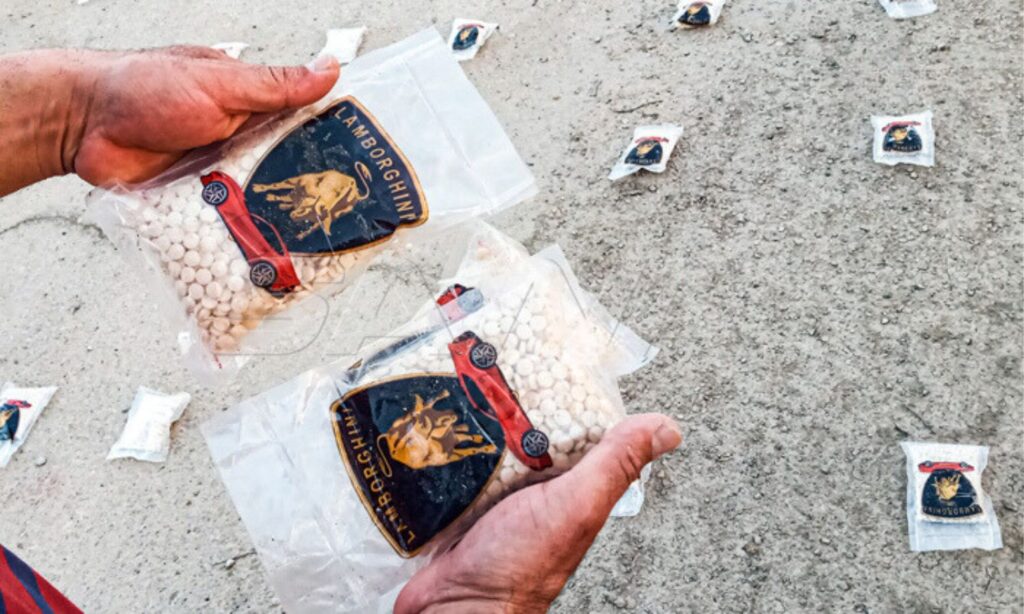The Syrian regime accused US forces stationed at the al-Tanf base at the Syrian-Jordanian-Iraqi border of facilitating the smuggling of the Captagon drug into Jordanian territory.
The Syrian Arab News Agency (SANA) reported today, Saturday, June 15, that “concerned authorities” in Palmyra, eastern Homs, seized “large quantities” of the narcotic Captagon pills that were prepared for smuggling abroad.
It added that “terrorist organizations in the Syrian Badia” were working on smuggling the drug shipment to a neighboring country without naming it.
SANA quoted an unnamed security source as saying that by monitoring the movement of those it described as “terrorists” in the Badia region, the security authorities were able to seize “large quantities” of Captagon while attempting to smuggle it through al-Tanf to a neighboring country.
The source added that the smuggling operations were coordinated with “other terrorist groups” spread in the 55-kilometer area where the International Coalition Forces led by the United States are stationed.
The area is located at the tri-border of Syria-Jordan-Iraq.
SANA pointed to unspecified media reports talking about US trainers training “terrorist groups” including those affiliated with the Islamic State before moving them to the Palmyra desert to carry out attacks on regime forces’ locations.
It added that one of the tasks of these “groups” is to create illegal corridors across the border to smuggle various amounts of drugs to neighboring countries.
The Syrian regime, along with its ally “Hezbollah,” is primarily accused of involvement in the drug trade in the region, and Arab countries, most notably Jordan and Saudi Arabia, are demanding control of this trade as part of the political solution pathways.
Jordan has yet to reach a formula to end the drug flow toward it from Syria, but initiatives have not yet borne fruit.
On June 5th, Jordan’s Anti-Narcotics Department thwarted the smuggling of a “huge quantity” of drugs and arrested members of “two gangs linked to regional drug smuggling networks.”
The Jordanian Public Security Directorate stated that after two months of intelligence and operational effort, and investigations involving security agencies, those implicated in the operations were arrested, and 9.5 million narcotic pills were seized.
While Jordan did not specify the source of the drugs or the regional networks responsible for smuggling, Reuters reported that the source was Syrian.
The agency quoted Jordanian officials as saying that Jordanian authorities had tracked two separate operations over weeks to bring a shipment of drugs across the northern Jordanian border with Syria. Unlike previous drug seizures, these drugs were seized at the Saudi border.
Jordan has repeatedly expressed its frustration with the smuggling operations from Syria. There have been repeated statements from Jordanian officials, both past and present, accusing the Syrian regime of managing these smuggling operations.
In an article published by the Jordanian al-Ghad newspaper in September 2023, former Jordanian Information Minister Samih al-Maaytah stated while reviewing the challenges facing his country, “Iran and its claws in Syria, along with the regime, continue to lead the drug war.”
Al-Maaytah also accused the Syrian regime of being directly involved in the drug smuggling issue in previous statements.











